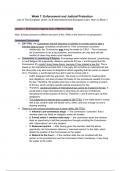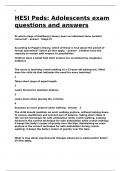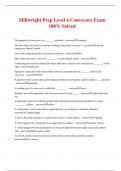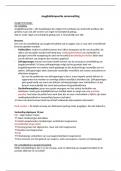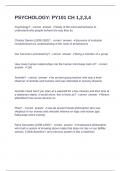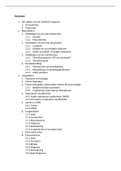College aantekeningen
Law of The European Union: Week 7 Full Notes
- Vak
- RGBEE50110
- Instelling
- Rijksuniversiteit Groningen (RuG)
This in-depth document covers everything that was discussed in Week 7 of the Law of The European Union course (LLB, year 2, block 1). Inside you will find the concepts from the lecture explained in a simple bullet point form with extensive explanation to help clarify the material. Cases in particul...
[Meer zien]
